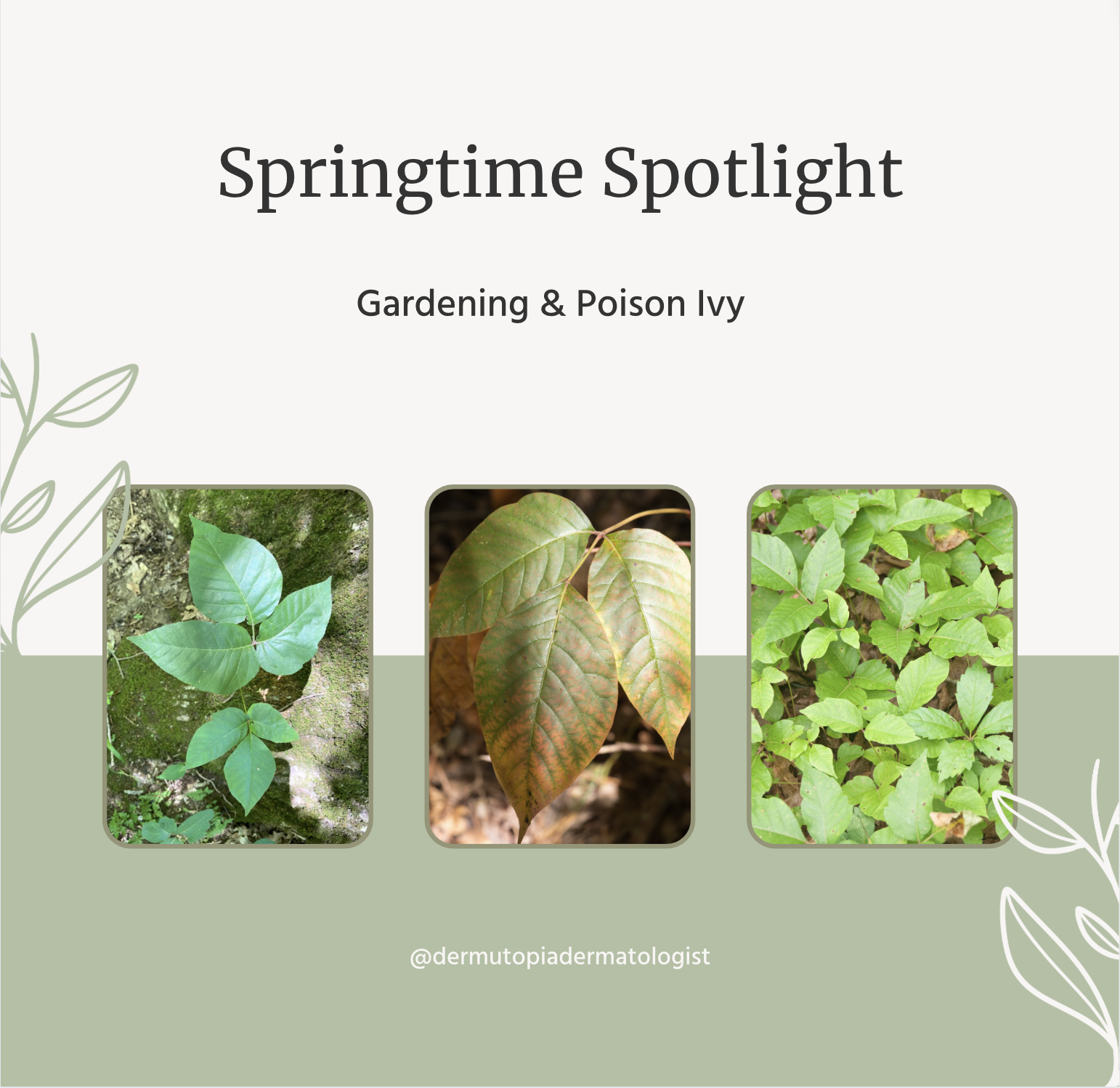
Spring is here, and with it comes the call of the great outdoors and the warmth of the sun. For many of us, this also means diving into yard work, gardening and reconnecting with nature. As we gear up for some springtime gardening, there’s one pesky plant we’ve got to keep an eye out for: poison ivy. Below are some Poison Ivy tips and information from DermUtopia.
What is poison ivy?
Poison ivy is a plant found in most of the United States. Many people are allergic to its sap that is in all parts of the plant.
What does poison ivy look like?
“Leaves of three, let them be” is a good rule to follow. Poison ivy usually has three green leaves on each stem. These leaves might take on a reddish hue and can grow close to the ground or as climbing vines. Dark spots on the leaves indicate exposed sap to the air. Additionally, poison ivy can vary in color and appearance throughout the year.
What should I do if I am exposed to poison ivy?
First things first, let’s clear up a common misconception: poison ivy isn’t contagious. Simply touching someone else while you have a poison ivy rash will not spread the rash to them. Instead, it’s the sap found in the leaves, stems, and roots that causes the problem. If it gets on your skin, it’s crucial to wash it off immediately. Otherwise, it can lead to an itchy rash appearing in various spots on your body over time, which may persist for weeks. Washing off the oil may reduce your chances of getting a persistent poison ivy rash.
If you have been exposed to poison ivy, resist the urge to take a hot shower. As tempting as it may be, hot water can actually make the itching worse. Instead, opt for cooler showers and gently cleanse your skin with a product like “Tecnu” body wash, specially formulated to remove poison ivy sap.
If you do get a rash from poison ivy, reach for calamine lotion for relief. Calamine lotion can provide soothing relief, helping to alleviate discomfort and promote healing. Just make sure it’s calamine, not caladryl, as Dr. Dintiman does not recommend Benadryl for this kind of itch.
If the rash persists or spreads, seeking assistance from a dermatologist is advisable. They can prescribe topical or oral medications to help you manage your poison ivy rash.
Bonus Fun Fact: Mangoes contain “Urushiol” which is a cousin to poison ivy
in their skins. So, if you’re enjoying this tasty fruit, be sure to wash the skin before handling.
As we venture into our gardens and yards this spring, with a little awareness and the right remedies on hand, we can keep our yards beautiful and our skin unscathed.
Happy gardening!
Follow Us On Instagram Here For More Tips And Specials.
Interested In Learning More About Your Skin? Click Here To Explore More Of Our Blog Topics.
